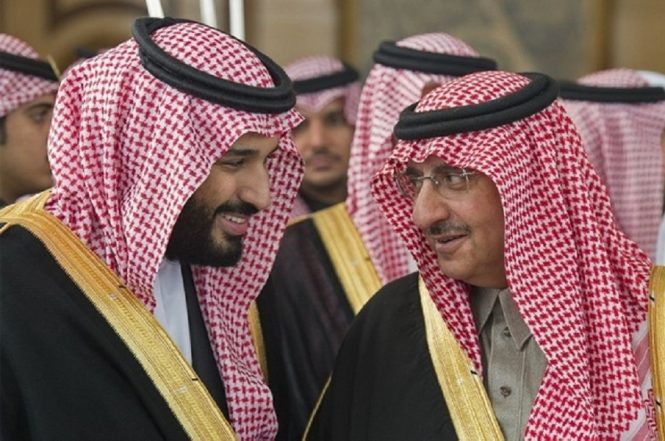
Mohammad Bin Salman: Prince of Disruptive Governance – By Olawale Rasheed
Recent happenings in the Kingdom of Saudi Arabia raise fears of the unknown. The conservative nation is moving towards modernity at a very fast pace that is leaving many fearful and uncomfortable. Too fast, too eager, too ambitious are phrases coming out from tested watchers of gulf politics and power play.
The multitudes of reforms when combined with dangerous adventures abroad unsettle the best of allies. For one, the modernization of the economy including part-privatization of the oil sector is progressing with appreciable progress on the IPO. Moves are on for Dubai like resort city, creation of military industrial complex and many modern innovations to take the kingdom to a new level.
The fears of the unknown persist in a country just building institution to attune with demands of modern economy. Listening to the Crown Prince, Mohammad Bin Salman, he believes modernization of the economy is achievable at a faster pace. In any case, there is the feeling that the kingdom leadership has been slow to modernize and catch up with 21st century developments.
Keen watchers had hoped modernization would proceed to a stage before other reforms. This they reason is to allow for stability and consolidation.
However, the new big boss has a grand vision than many had thought. His view of the place of Saudi Arabia in the 21st century is so broad and expansive that he cannot wait.
Simultaneous upturning, fine-tuning and upgrading of all sectors of the society were the master plan. This is not necessarily bad. It is likely it will work even though the risk factor is threatening. The most sensitive is the religious super structure. Saudi Arabia is the leader of the Sunni world to which close to 70 percent of world Muslim belong. The religious reform includes the very ambitious declaration to take on the conservative religious bloc. Saudi Arabia is to embrace a moderate form of Islam, the Crown Prince said in a recent interview.
That pronouncement is hitting directly at the bilateral foundation of the kingdom between the Al-Saud and late Imam Wahab families. Will that mean a review of the Wahabi doctrinal teachings? How will the religious sector take it? What is the larger implication and ramification for the larger Sunni world? What is the implication for Sub-Sahara Africa?
Scriptural reforms from the Kingdom may have positive impact on ravaging Islamic militancy across Africa. Will such reforms weaken the Salafist and Wahabist movements? Will this cut off the sources of funding for extremist groups within and outside the Middle East? Many analysts have posited positive outcome for such religious moderation from the Kingdom.
There is however the down side. Many are watching to see the form the religious reform will take. If this includes radical decapitation of core conservative clerics, uncertainty may the outcome.
Alternatively, maybe it will just be mere window dressing especially as the core of Wahabi and Salafi preaching and teachings now transcend the borders of the kingdom.
Ambitious national reforms however demand internal cohesion for successful outcome. Reforms expected to destabilize the old order are best implemented when levers of power within the society are coordinated and united under mutual survival. The development within the Kingdom defies this reality. A potentially disruptive reform is underway within the context of aggressive shake up of the power establishment. What effect will this unusual combination has on the reform outcome?
The mass purge of ministers, fellow princes and top officials has the tendency to create internal dissension and disunity. Yet this is happening at a time the foundation of the economic and religious life of the society is undergoing radical reforms.
Without national cohesion, can all these reforms be successfully pushed through?
If national unity is a factor, the situation becomes more complicated when it is realized that the kingdom is engaged and involved in many international flash points. Yemen is festering; Lebanon is a threat; Syria is a lost cause; Iranian engagement is becoming explosive; the controversial rapprochement with Israel is unfolding.
When you piece all together, you conclude quickly the Crown Prince has read too many theories of disruptive governance. I have read many too. I am particularly impressed with disruption in politics and public governance. I also notice the unusual close relationship of the Prince with the President of the United States of America, Donald Trump, and a great fan of disruption as a toll of national governance.
However, there are associated risks. Yes, the whole process can spiral out of control. Allies may not have appetite for another conflict especially when facing their own internal challenges. Adversaries may prove more resilient. Mass purge may create wealthy opposition abroad. Local institutions may be unable to cope with the reforms.
Yet, it may eventually work. No leader should embark on such ambitious reforms without extreme caution and fall back options. The urge to catch up with the world, with rivals, with regional foes, compels aggressive reforms and innovations.
For now, the kingdom is travelling on uncharted territory. The young prince is a risk taker, an ambitious reformer. If he delivers, he becomes the creator of modern Saudi Arabia.
–
*Olawale Rasheed, Publisher of Sahel Standard, sent this piece from Abuja




